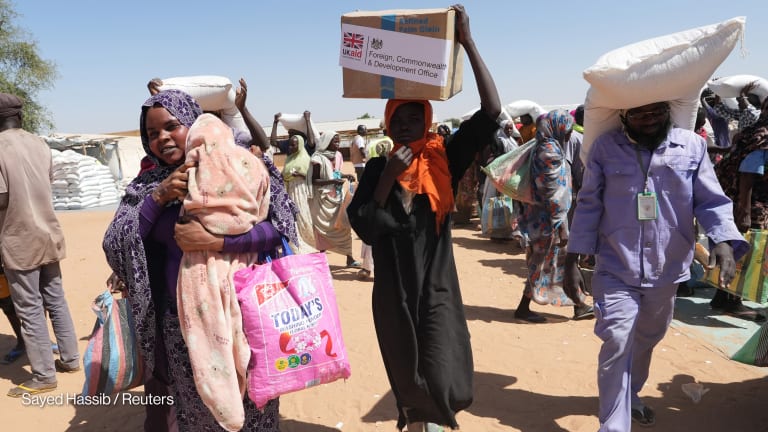
The United Nations Development Programme expects to become the latest multilateral agency to see a cut in funding from the U.K. government.
The prospect of a reduction was raised in a July 1 tweet by Achim Steiner, the UNDP administrator, following a meeting with Barbara Woodward, the U.K. ambassador to the U.N.
When asked by Devex, UNDP did not provide further information about the size of the cut or when it would take place. The Foreign, Commonwealth & Development Office confirmed in a message that it was “rebalancing the aid budget towards bilateral programmes” but would not give details of what this would involve.
The move is the latest in a series of cuts from the U.K. following its decision nearly two years ago to reduce aid spending from 0.7% of gross national income to 0.5%.
Before the cuts, the U.K. provided $162 million out of UNDP’s $5.6 billion in funding in 2020, including core funding worth $70.1 million, according to the UNDP Funding Compendium.
The U.N. said in mid-2021 that funding for the agency was already facing a 60% cut.
Total U.K. aid spending in 2020 was $18.6 billion, with multilateral funding accounting for $6.4 billion, or 34%, according to figures from the Organisation for Economic Co-operation and Development.
U.K. government figures suggest similar pound values of £14.5 billion and £4.9 billion. The country’s international development strategy, published earlier this year by FCDO, laid out an explicit plan to cut funding to multilateral agencies in favor of bilateral commitments, saying it wants three-quarters of aid spending to go through bilateral channels — up from around 60% at present.
The bulk of this reduction is expected to come from a 55% cut in funding to the World Bank’s International Development Association, estimated to be worth £1.8 billion over a three-year cycle, and the gradual tapering off of money to the European Union, which received over £1.1 billion in 2020 and £824 million in 2021.
The cuts were criticized by Stephanie Draper, the CEO of Bond, the U.K. network for organizations working in international development.
“The UK’s decision to deepen cuts to core funding for key UN agencies, just one year after slashing it by 60%, fuels concern that our commitments to the world's most marginalised people are taking a backseat,” she wrote.
"A UK withdrawal from multilateralism will hurt international efforts to support millions of people affected by multiple crises including devastating food crises and impending famine across the Horn of Africa and elsewhere. This is a time to show support and collaboration. That means returning to 0.7% and ensuring the right international agencies are funded to play their critical role.”
Search for articles
Most Read
- 1
- 2
- 3
- 4
- 5








